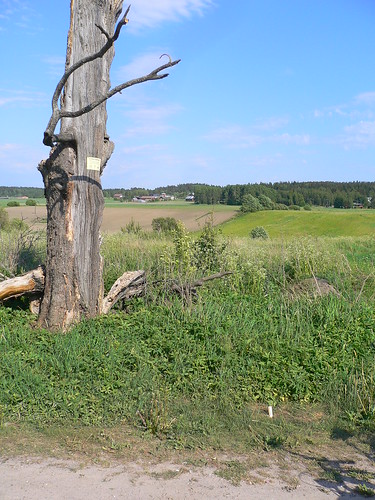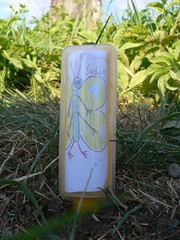As I'm sure you guys know by now, it is extremely difficult to stay alert and attentive, instead of getting hypnotized by the constant monologue inside your own head (may be happening right now). Twenty years after my own graduation, I have come gradually to understand that the liberal arts cliché about teaching you how to think is actually shorthand for a much deeper, more serious idea: learning how to think really means learning how to exercise some control over how and what you think. It means being conscious and aware enough to choose what you pay attention to and to choose how you construct meaning from experience. Because if you cannot exercise this kind of choice in adult life, you will be totally hosed. Think of the old cliché about quote the mind being an excellent servant but a terrible master.- DFW, "that keynote address" at Kenyon College 2005
I'm supposed to be writing essays right now, and I'm just completely useless. I woke up late (I see why, now, the universe was attempting to spare me for a few more hours) and noticed a huge amount of email in my inbox, most of it from Wallace-l Digest. Irritated at their obvious technical difficulty, I clicked one to check at what point they would start to apologize for the mess, and the headline "DFW suicide?" hit my eyes like words from a foreign language. I remembered that the following headline in my inbox was one from a good friend (and fellow DFW fan) with the sum-it-up headline "FUCK." All of a sudden it was true.
It's much easier for me to grab lines others wrote on the digest (writers, tell me if this pisses you off) than to put it in my own words, sometimes. Like Matt M here:
"The scary thing, and it must be so for some of the recovering addicts here, it's at least scary to me, is that I feel like if anyone was going to win the battle, it'd be someone who was almost bottomlessly sensitive and monsterously (sic) intelligent. I understand here that it's a bit selfish to take this decision he's made and extrapolate it into some kind of universal condition to be applied to all those struggling, but it is at least in some ways difficult not to, because through his writing, we've many of us discovered how much his views about the world around resonate with us. And for those views to terminate here is frightening."
I don't get gutted over writers, artists, dancers, people I don't know. Not usually. A major chunk of it truly is the fact that he advocated (and I thought I was starting to learn) keen and intelligent awareness, rigorous compassion, and having a sense of humour to balance out the sheer horror you find when you do see the world for what it is. Of hearts he was most generous, at least in his writing. There are artists who can communicate about depression or about the personal experience as something also universal, but there are very few who can ever do it with the degree of minutiae/large scale as Wallace did.
And but so. When the one person in life who you thought really had figured out how to "see" the world and still survive and in fact be a really wonderful beautiful contribution to humanity in general hangs himself, where do you go? Did I just have the guy on an invisible pedestal? What happened? Yesterday I would have said I considered DFW to be the best writer (possibly also thinker) of his generation, an excellent wordsmith and essayist, devastatingly funny and true in his stories, and someone I looked up to. Now I realize I thought he was even more. Deep down, I thought he had figured out how to be happy. I thought he was immune to being human. It's an oversight that doesn't make me feel good; even though it can be a great compliment for me to say of another human being that they were freaking phenomenal in the whole having a soul department, I feel in a way I disappointed him by not being aware of what his advocacy of awareness made me think about him.
And I'm sad that it's not bigger news, although at the same time I'm simultaneously comforted and left unsatisfied by every news snippet and blog reaction that I've read (including my own). My eyes started stinging again when I googled for news and saw that someone on Wikipedia had already changed the entry to David Foster Wallace was instead of is. How cruel. The mechanism of information, of recording the story.
I have a very large, old copy of a Webster's dictionary that has bios of American presidents as one of the indices, and since the dictionary was published in the middle of Nixon's term, he's the last entry in there, all smiling and optimistic and winning, and I have always loved the book for this. I have loved that the memory of how things were can be frozen in a published book. The living, all-consuming monster of the Internet makes me shudder in comparison. Given that DFW's death chapter on his Wikipedia entry was probably written by someone who cared enough about his books to notice, does it not somehow rankle that someone, at least one fan, felt compelled to make sure the entry was up to date? It's not the same as journalism or blogging, where commentary can commiserate; it's the land of impartial, cold hard fact, and it feels like twisting the knife. How odd. Reminding that the mechanism of memory is also impersonal, that the show must go on and too bad about your writer, but we have a cold hard fact to update here. I wanted to see the memory of an old time, recorded like a photograph of factual account, like an encyclopedia. I'll have to go to a real encyclopedia for that I guess. I wonder why that set me off so much.
Anyway, this is all water. And this makes me feel better.


